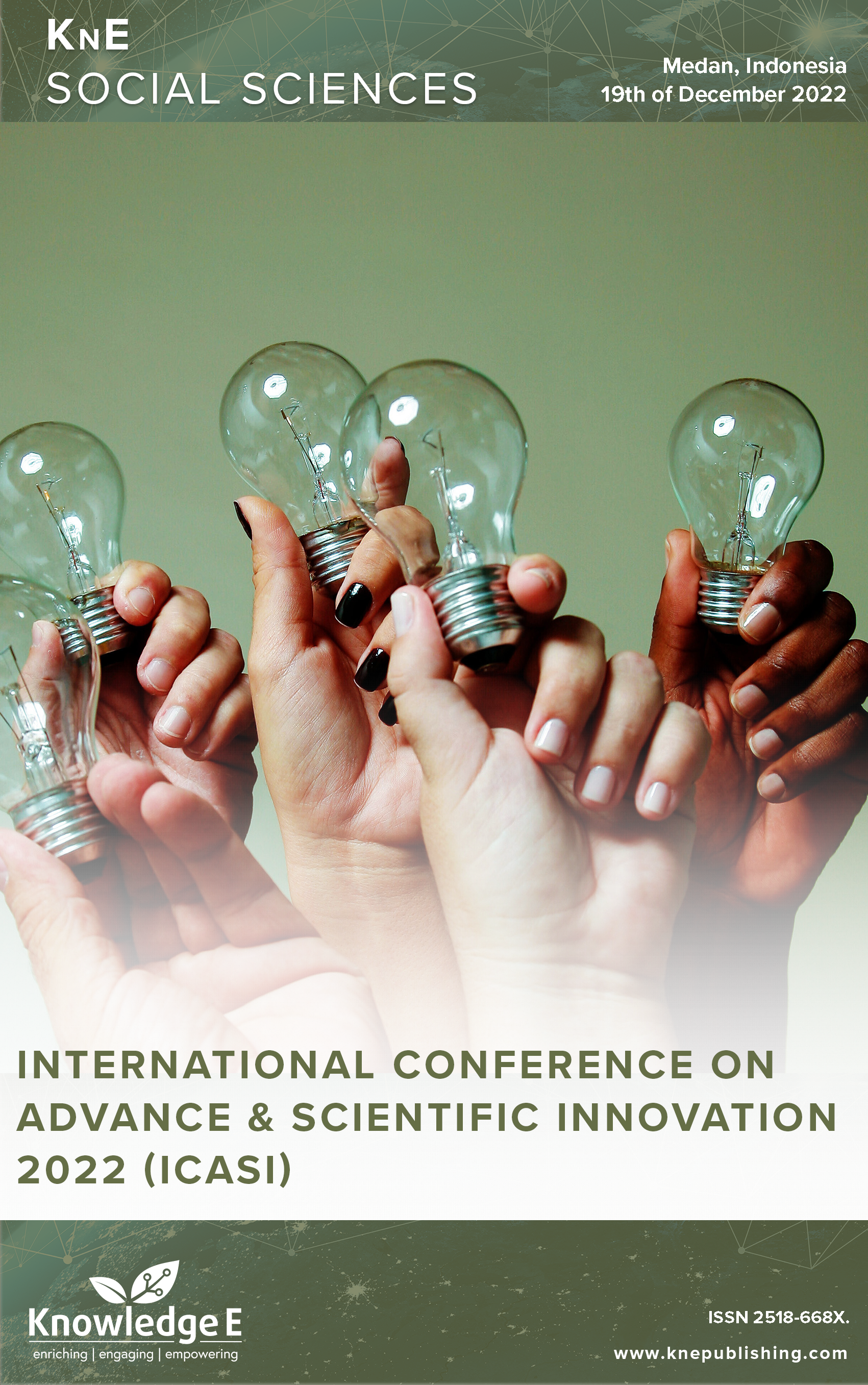Pentahelix Business Collaborations to Increase MSMEs' Post-pandemic Performance
DOI:
https://doi.org/10.18502/kss.v8i9.13326Abstract
Indonesia, in early 2020, experienced a major impact on the decline in the national economy, including the MSME sector due to the COVID-19 pandemic. This study aimed to determine the obstacles faced by 21 MSMEs during the COVID-19 pandemic and to find out whether pentahelix collaborations had been implemented by the 21 MSMEs in the Medan Labuhan District as an effort to overcome the business constraints faced and to improve the MSMEs’ performance in the context of economic recovery after the COVID-19 pandemic. Business collaborations carried out in MSME recovery programs are often referred to as the pentahelix model. The pentahelix model involves five stakeholders, namely, academics, businesses, communities, governments, and the media. The pentahelix model is a socio-economic development model involving collaborations and partnerships between five different roles. Using a descriptive method with a qualitative approach, this study was conducted on 21 MSMEs engaged in traditional snack and handicraft businesses in Medan Labuhan District as research objects. Data were collected using interviews and observations. Several obstacles were faced by MSMEs in Medan Labuhan district during the COVID-19 pandemic. Fifteen MSMEs experienced marketing-related problems, two had capital-related problems, and four had decreased-sales-related problems. Additionally, 17 MSMEs were found to have implemented pentahelix collaborations involving academics (Universitas Sumatera Utara, Universitas Muhammadiyah Sumatera Utara, Universitas Islam Sumatera Utara, and Universitas Harapan Medan), the government (Medan Labuhan District Government, Medan City Government, and the Office of Cooperatives and MSMEs of Medan City), businesses (Bank Sumut and BRI), communities (independent women’s SMEs, Family Welfare Empowerment Program, and Family Hope Program), and the media (Facebook, WhatsApp, and Instagram). MSMEs in Medan Labuhan District were suggested to optimize business collaborations under the pentahelix model in order to overcome the obstacles posed by the COVID-19 pandemic. In addition, each stakeholder in the pentahelix model should strengthen synergy and focus attention on the use of social media to help those MSMEs market their products. Finally, banks are advised to help those MSMEs overcome the capital constraints.
Keywords: business collaborations, Pentahelix, Social Media, MSME performance.
References
[2] Annisa D. “Situasi Terkini Perkembangan Coronavirus Disease (COVID-19) 16 September 2021,” infeksiemerging.kemkes.go.id, 2021. https://infeksiemerging.kemkes.go.id/situasi-infeksi-emerging/situasi-terkiniperkembangan- coronavirus-disease-covid-19-16-september-2021
[3] Hardilawati WL. “Strategi Bertahan UMKM di Tengah Pandemi Covid-19.” J Akunt dan Ekon. 2020;10(1):89–98. https://doi.org/10.37859/jae.v10i1.1934
[4] Katadata. “Digitalisasi UMKM di Tengah Pandemi Covid-19.” Katadata.com, 2020. https://katadata.co.id/umkm
[5] Bahtiar RA. “Dampak Pandemi Covid-19 Terhadap Sektor Usaha Mikro, Kecil, dan Menengah Serta Solusinya.” Pus Penelit Badan Keahlian DPR RI, Bid Ekon Dan Kebijak Publik. 2021;XIII(10):19–24. [Online]. Available: https://berkas.dpr.go.id/puslit/files/info_singkat/InfoSingkat-XIII-10-IIP3DI- Mei-2021-1982.pdf
[6] Barus DS. “Strategi Pengembangan digital entrepreneurship Usaha Mikro Kecil Dan Menengah (UMKM) Dengan Menggunakan Model Pentahelix.” Universitas Islam Negeri Sumatera Utara, 2019.
[7] Dwi B, Wadu RB, Nopiyanti A. Daya Dukung Penta Helix Terhadap Kinerja Manajemen UMKM di Serang Banten. Deepublish; 2021.
[8] Ishak P, Sholehah NL. Implementasi Model Pentahelix Dalam Pengembangan UMKM Dimasa Pandemi Covid-19. Gorontalo Account J. 2021;4(2):207.
[9] Achmad ZA, Azhari TZ, Esfandiar WN, Nuryaningrum N, Syifana AFD, Cahyaningrum I. “Pemanfaatan Media Sosial dalam Pemasaran Produk UMKM di Kelurahan Sidokumpul, Kabupaten Gresik.” J Ilmu Komun. 2020;10(1):17– 31. https://doi.org/10.15642/jik.2020.10.1.17-31..
[10] Sari IY. “Pengaruh Orientasi Kewirausahaan dan Inovasi Produk terhadap Kinerja UKM Kota Makassar.” Universitas Islam Negeri Alauddin Makassar, 2016. [Online]. Available: http://repositori.uin-alauddin.ac.id/id/eprint/5034
[11] Umar N, Mukhdasir. “Pengaruh Kepercayaan Merek Dan Kebijakan Harga Terhadap Kinerja Penjualan Produk UMKM Di Kota Banda Aceh.” J Sains Ris. 2022;12(1):139– 152. [Online]. Available: https://journal.unigha.ac.id/index.php/JSR/article/view/578

